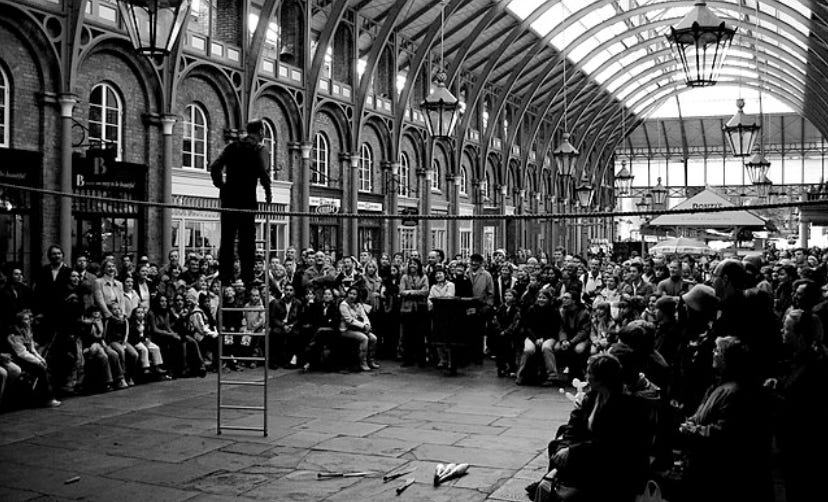on modern prophets
Satantango and the world's witnesses
In the novel Satantango, there’s a village at the center of nothing, and everyone left knows they’re rotting there. It is not your neighborhood, but it could be. It is not a destination, but it could be. It is not America, but it could be.
There’s a village where the rain won’t stop. Where the money’s gone, the collective farm drained, the buildings leaning like drunks.
Until Irimiás walks through the rain. His coat not wet. His voice strong. And the village waiting for him, as they have been all along.
This is how prophets work. They don’t arrive with solutions – they arrive with the shape of solutions, with sentences structured like promises even when they promise nothing concrete.
But prophecy isn’t about truth, it’s about timing. That a man with conviction will always magnetize a community without direction. That desperation asks only for someone to sound like they know where they’re going. The walk towards a prophet is never about finding truth. It’s understanding you’d rather drown following someone than drown alone.
Where would the world be without its witnesses? Without the ones who watch the prophet arrive, who see the village gather, who recognize the pattern repeating itself across centuries and continents. Who understands that every rain-soaked village is really every village, that every Irimiás is really every voice promising certainty in ruins.
The prophet will return tomorrow, spinning his elegant deceptions. And the village will gather again. The alternative is the sound of rain on their own roofs. Is facing the mirror without a story to tell about why they’re still breathing.



